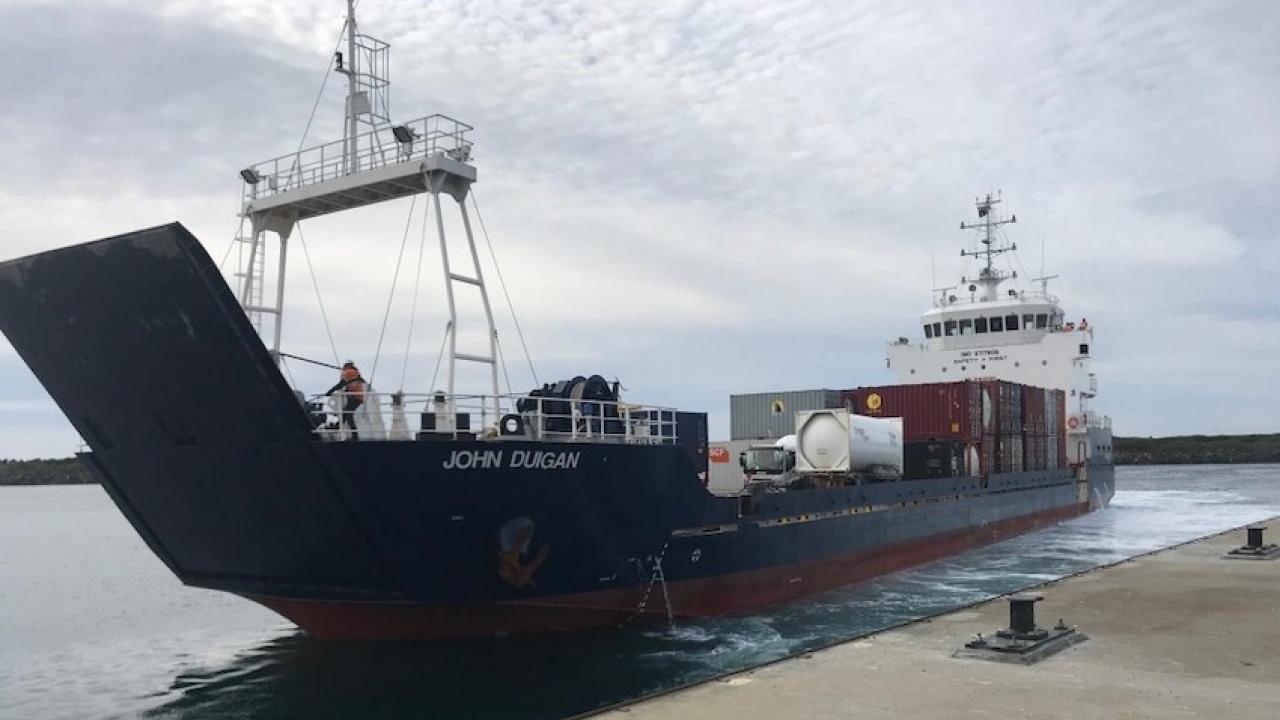BIL shipping fights a losing battle

DESPITE the significant improvement in reducing losses, Bass Island Line continues to operate at a financial loss.
The underlying issue of profitability of the vital service remains unresolved.
This could raise concerns about the long-term financial sustainability of the service, particularly if it continues to require government underwriting during crises like the recent drought.
The reliance on cost-recovery mechanisms, such as fuel surcharges, while balancing financial viability and customer affordability will remain a key challenge.
TasPorts Annual Report 2023-24 tabled this week reinforced that BIL plays a critical role in King Island’s economy through the reliable transportation of goods and livestock and island prices.
However, an analysis of the report also showed that the service faces several challenges that affect its operational and financial sustainability.
BIL’s strategic focus has been on improving financial performance and service reliability. BIL was able to reduce its operating losses from $1.4 million in FY2023 to $570,000 in FY2024.
The improvement is attributable to strategic cost-recovery mechanisms, such as passing fuel surcharges on to customers and higher cargo volumes.
Cargo volumes increased by 20 per cent (82,547 tonnes vs. 68,527 tonnes in FY2023).
During King Island’s drought in FY2024, BIL doubled its sailings to twice weekly, from April 1 to July 21, 2024, and was financially supported by the Tasmanian Government.
Increased sailings assisted with livestock evacuation and feed imports and highlighted BIL’s role as an essential service provider for the island.
However, what is not reported is that the emergency highlighted the negative consequences of TasPorts cutting the triangular service linking King Island to mainland markets, which led to destocking holdups and the lack of capacity at Tasmanian abattoirs.
The annual report states that only one voyage was cancelled in FY2024 due to severe weather and that BIL has maintained a high level of service reliability.
The TasPorts report indicates that the regulatory review by the Office of the Tasmanian Economic Regulator (OTTER) and the subsequent government endorsement of BIL pricing policies suggest that BIL’s operations are aligned with public expectations, and this indicates that BIL operates sustainably while meeting community needs.
The additional sailings during the drought, underwritten by the Tasmanian Government, highlight BIL’s dependency on external financial assistance.
While government support is necessary for such essential services, the model raises questions about BIL’s resilience and ability to independently manage operational risks in the future.
Ongoing reliance on public funding could potentially limit the service if it continues to struggle with self-sufficiency.
The solution appears to be increased freight prices for King Island residents and businesses, as experienced this September with another increase in October.
The ongoing review of the vessel John Duigan, a recommended action by OTTER and endorsed by the government, suggests there are off-island concerns about its suitability for the current operational demands.
This review points to possible capacity limitations or inefficiencies in meeting the needs of both King Island’s residents and businesses.
If the vessel is deemed unsuitable for long-term use, there may be significant capital investment required to replace or upgrade adding financial strain to BIL’s operations.
The report noted that the OTTER inquiry into pricing policies highlighted the issues around the fairness of costs for island residents.
BIL has implemented measures to offset its own rising costs.
Maintaining a balance between keeping the service affordable for customers and financially viable for the company is an ongoing challenge, especially in the context of rising fuel and operational costs.
BIL’s service is fundamentally tied to King Island’s specific needs.
This narrow focus makes it vulnerable to fluctuations in demand, weather conditions, and regional economic activity (such as droughts and livestock market volatility) and the customers and community vulnerable to its practices.

Add new comment
Comments
Shipping
If the crisis faced by all of King Island hasn't demonstrated the inadequate capacity of the current service we all need to review our understanding of what is a capable service. The island needs to be able to trade with the mainland with a suitable vessel to cross Bass Strait.. The economic viability of the island is being restricted by the lack of an efficient and suitable vessel. Example Grp 6 metals. Suputo Dairy. Sheep producers leaving the industry because of high costs of moving sheep and wool.